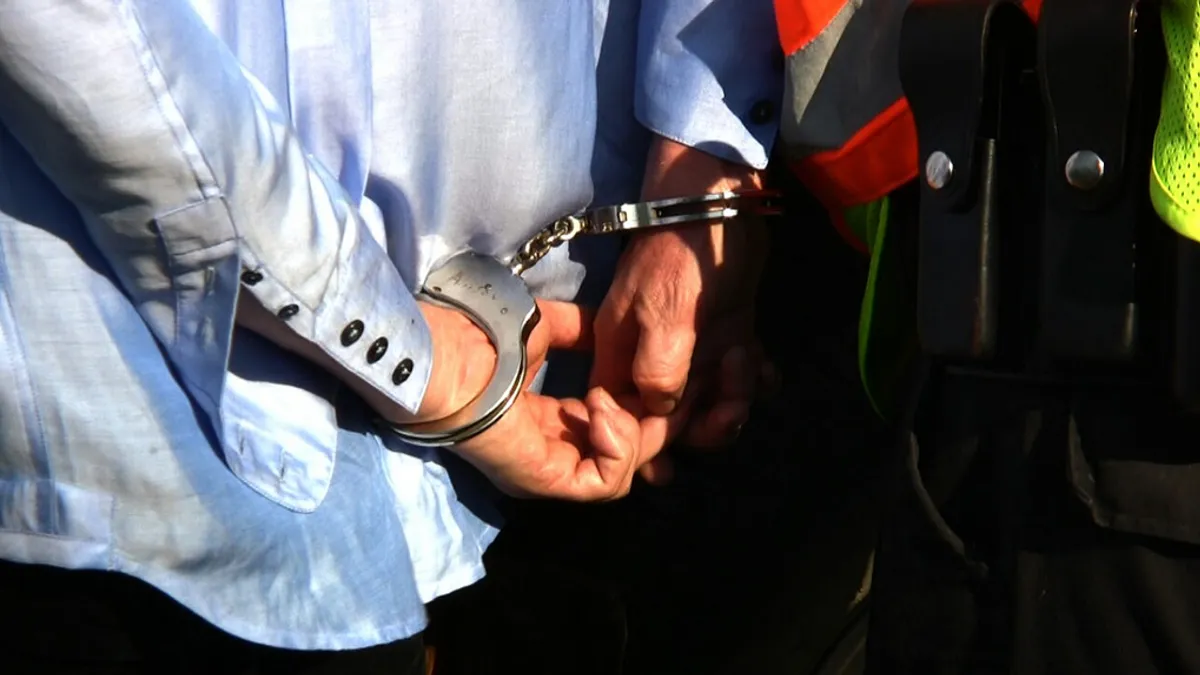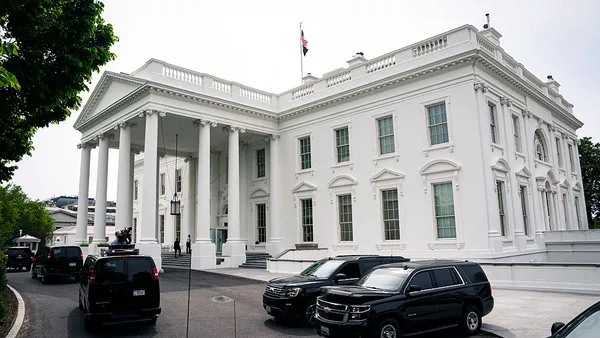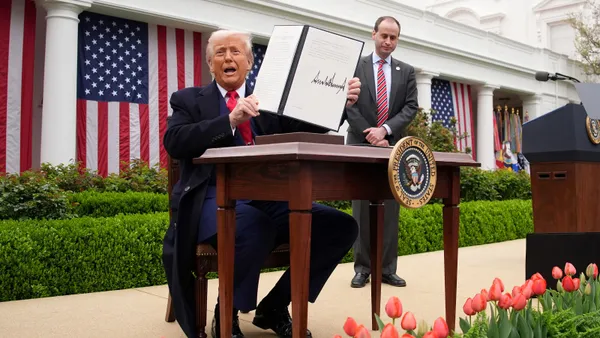Dive Brief:
- The U.S. Department of Justice announced Friday that Gary Duff, owner, CEO and former president of Texas-based Herc Solutions, was sentenced to 18 months in prison for defrauding the U.S. Department of State out of $1.37 million. Duff pleaded guilty on Feb. 12 to conspiracy to defraud the U.S. and to commit wire fraud.
- Herc performed construction projects in developing countries and in military zones for the State Department and other agencies. Prosecutors said that Duff and co-conspirator Steven Graves, a former contract specialist and senior contracts administrator for the State Department's Office of Acquisitions Management, used Graves' position as a point of contact at the department, and his access to confidential procurement information to secure contracts for Herc.
- Graves also acted as a de facto partner in Herc and engaged in business activities like raising money and winning new business without revealing the conflict of interest. When Graves left the State Department, he stepped into a new position at Herc as majority owner and executive. Graves pleaded guilty on Sept. 20, 2017, to the same charges as Duff, in addition to a willful violation of the conflict of interest statute. Graves was sentenced to 15 months in prison on Jan. 19.
Dive Insight:
Public contracting officials, whether working for federal, state or local agencies, are entrusted with making sure taxpayer money is spent wisely, fairly and according to relevant regulations. When they don't, the authorities are quick to come down hard on them.
Earlier this year, a former New York City Metropolitan Transit Authority construction project administrator was ordered to pay a fine of $20,000 and serve a prison sentence of 46 months, followed by three years of supervised release, after he pleaded guilty to soliciting and receiving bribes from authority contractors. The U.S. Attorney's Office for the Eastern District of New York said Talib Lokhandwala received more than $152,000 from some contractors in exchange for expediting their paperwork and helping them to win projects.
The scheme lasted approximately six years, with Lokhandwala able to conceal his illegal activity by depositing the bribes into shell bank accounts controlled by him and his wife. The U.S. Department of Transportation's Office of the Inspector General also became involved with the investigation because some of the projects in question had been funded to some degree by the Federal Transit Administration.













